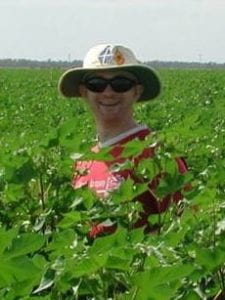Do you remember the ‘good old days’ when things were easier?
I recently ran into an old colleague of mine and we exchanged the usual pleasantries. I asked how he was and he replied, ‘you know, I find that I just don’t get to focus any more. My brain actually hurts with all the little things that I now have to juggle and I am tired of not being able to get the things done that I am good at.’
This response was something of a surprise and not because I admire the individual and their science, but because the statement resonated with me. I didn’t empathise with their issue, I truly sympathised. This got me thinking about what it is that has changed in our work, are we truly spread more thinly across multiple activities and whether we should be more mindful of not only our mental health, but that of those around us as we cope with continuing to do the job. Are there things we can do that will allow us to continue to enjoying the science that engaged us all those years ago?
And the times, they are a changing (B. Dylan)
Do you ever have one of those days where you sit back and reminisce, even for a little bit? Do you ever find yourself reminiscing about how you used to have more time to reminisce? Just how often these days do we get to spend the day back in the lab or out in the field doing what we enjoy, are good at or got us into our careers in the first place? I suspect for many of us, who have not retired, not often enough would be the resounding cry. So when did this change take place and what can we do about it?

 Top. Oliver in a crop of Sicot 189 in 2005. Bottom. Oliver in Sicot 748 2016. Changes in plant height, Oliver’s girth and hair colour over the intervening decade. I still have the hat!
Top. Oliver in a crop of Sicot 189 in 2005. Bottom. Oliver in Sicot 748 2016. Changes in plant height, Oliver’s girth and hair colour over the intervening decade. I still have the hat!
So have things changed in how academia is delivered?
One big change is that when I went to University the government of the time very kindly paid my tuition and gave grants to support your books and living costs, although I was still at university when this was phased out.
Regardless of how we were going to survive on the savings from our summer jobs (very few of my mates worked during the term whilst we were at Uni), each year started with a meeting with our tutor or adviser of studies who was with you throughout your undergraduate degree. You’d sit, catch up, plan your courses for the year ahead based on the results from the year gone by and leave with your timetable. If I wanted to meet with them out with orientation week then I made a request via a telephone call or personal visit to the school secretary and would probably be seen within a week. That was how long it took, it worked and was pretty cool really, but have things changed?
Of course they have. Remember when, as students, we had to plan our time because we knew that a visit to the library was the only way to find out information not in the lectures and when extensions would only happened with a note from our hospital doctor! The concept of time and associated social boundaries has totally changed. Although I can’t find a physics paper on when this change happened and what the new rules are, how many of us get those follow up emails from a student asking why we have not responded to their request for an extension made at 23:57 on Sunday night, given that it is now 09:20 Monday morning? Were we more courteous and appreciative of other people’s time when we did not have the instantaneous connectivity of the internet? Perhaps not paying for our education actually made us more respectful of those who taught us, but how many of us are guilty of this ourselves? When was the last time you sent an email instead of making a phone call that would have answered your query ? When did we stop wanting to talk to people? Is it a time issue or have attitudes to personal interaction started to change? Who knows, but I feel it would be fair to say that instantaneous gratification is the expected norm and that students have a perceived right to it. After all, when I am paying for something then I expect a certain level of service, so why shouldn’t our students?
Should we be able to say no?
Given this move in education toward a constantly available teaching environment, I often marvel at how several of my colleagues don’t own a mobile phone! There are several others who either don’t have an email browser installed or their work address linked to their phone, but why should they? It is, after all, their phone and our employment conditions are only for so many hours a fortnight, but how do they cope in this era? Perhaps that’s the rub, maybe they have gotten it right and in reality we should all be taking note of their example and remembering that in some instances imposing limits can be beneficial to our health and that it is OK to say no.
Is it just expectations that have changed?
Somethings are very much as they were. My undergraduate classes ranged in sizes from several hundred to a few dozen, so no real change there. However, lectures involved overhead projectors and periods of dictation written down into books and binders, whereas now we have on-line learning environments accessed via computers. We used to have tutorials, where you were given papers and experiments to read and critique prior to a group feedback session chaired by an academic. Now we are told how flipped classrooms offer an improved teaching environment, but if there is a pedagogical difference between this learning environment and tutorials then I must confess that I am still trying to find it. Oh, and we did have the internet. Sure it was limited, for example a single sequence alignment would take the best part of a day to do, so my honours supervisor would only let me use his personal computer to run them overnight.
Studying science meant practical classes, where you physically touched samples and where your group, of no more than eight students, had a demonstrator to support your study, mark your practicum notes and see you again the following week. Today the ratio of one demonstrator to 15 students is more normal, but perhaps students are better behaved, the classes better planed and the equipment and facilities make it all so much easier. However, how much convincing would it take to make most of us believe that the real driver is financial rather than educational?
So, in many instances, the delivery medium has changed, but the underlying ethos is still the same.
Are we still on track
I guess we are still delivering quality tertiary educated graduates for today’s employers and like so much in our modern lives somethings have changed for the better. After all, how many of us would have believed 20 years ago that our phones would now be used to text, email, search the internet, be our alarm clocks and, occasionally, make phone calls! However, what has not changed over my years receiving and delivering tertiary education is us. We are still human beings doing a job and there is no doubt that the job has changed. Personal computers and the internet in theory have sped up communication and most of us have more than one role within our various institutions as we satisfy research, teaching, service and any other duties within out contractual obligations, but essentially we, the person in front of the screen, is still a single entity and there will always remain limits to just what we can do. Being aware of these limits, finding ways to work within them and knowing what to do when it gets too much is probably more important today than it has ever been before.

RUOK and a blue tree. Both examples and reminders to ask both ourselves and those around us about being OK.
So if the focus starts to go, the jobs never seem to get completed and the myriad of requests on your time just appear to be never ending then remember that you are not alone, but don’t sit there and do nothing. You are a valued individual and are appreciated, but if you are having trouble recognising this then please talk to someone. Perhaps the reason why my colleague’s comments struck home with me is because this was me last year. Someone else had to point out that something was wrong, but I sought help and, whilst the myriad of tasks has not gone away, I can recognise when it is getting too much, am now coping most of the time and have people to talk to when I can’t.

The 2019 AACS meeting will be held at UNE from the 28th to 30 October.
Health and wellbeing forum
For those of us involved in the cotton industry it has been a tough couple of years with no end in sight to the current drought. There have been other events this year that will have affected the mental health of many of us and no doubt there will continue to be others. However, you are all valued individuals and sometimes we just need to take a minute to remind ourselves of this fact. Mental health is an issue that will affect all of us at some time or another and in recognition of this we will be hosting a session focusing on mental health awareness and coping strategies as part of the AACS meeting this October at UNE. However, if you think you might need help, are simply feeling a bit blue, have days with the black dog, are concerned about a colleague and want to talk to someone about mental health issues then please don’t wait till then before you speak to someone. It really is an easy thing to do.



Recent Comments